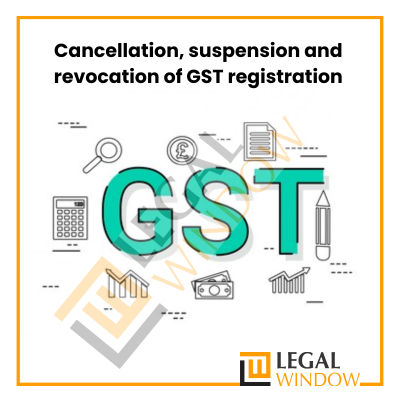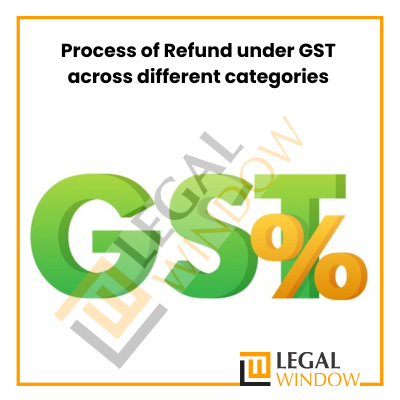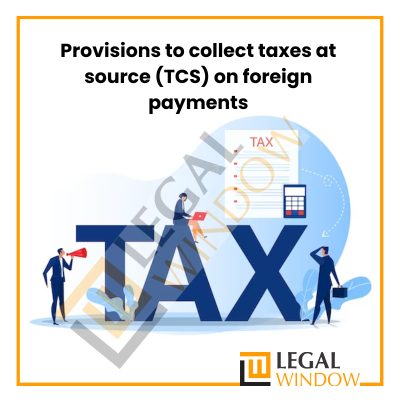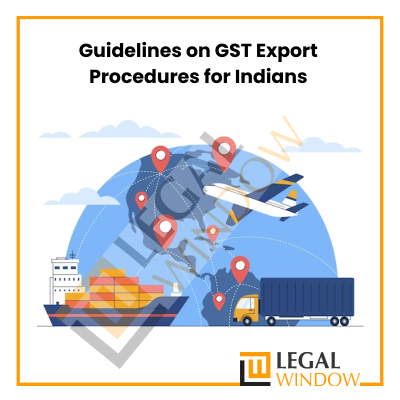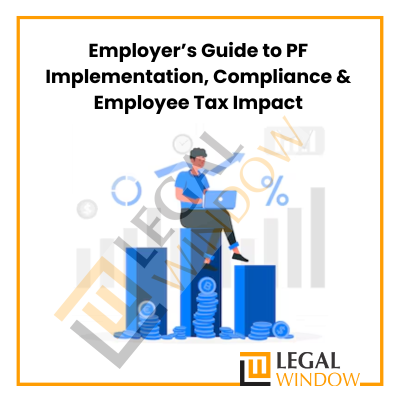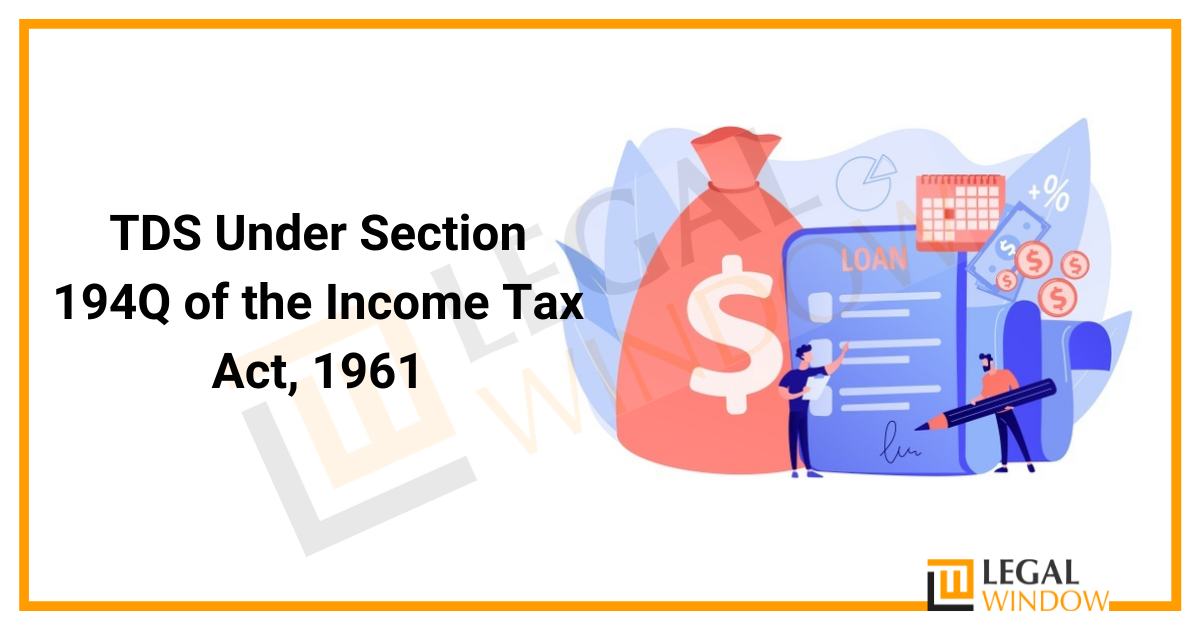
TDS under Section 194Q of the Income Tax Act,1961 was introduced in Union Budget 2021 which is effective from 1st July 2021. Businesses are required to deduct TDS on purchase of goods if the amount exceeds fifty lakh rupees in the current financial year and ten crore rupees in preceding financial year. The TDS rate is already very low which is 0.1 %. If the buyer has credited or paid any sum before the effective date, then Section 194Q will not be applicable on that amount. The objective of the government to bring this provision is to establish the sequence of high values of transaction of sale and purchase of goods.
Provision Related To Deduction Of TDS On The Purchase Of Goods
According to Section194Q of the Income Tax Act, 1961, TDS will be deducted when:
- The buyer is responsible for making payment of the amount to the resident seller.
- And the payment will be done when the amount is more than fifty lakh rupees on the purchase of goods.
Definition of Buyer
Section 194Q defines a buyer as a person having total sales/gross receipt or turnover exceeding rupees ten crores in the immediate preceding financial year in which the specific purchase of goods has taken place.
Exemptions Under Section 194Q
TDS under section 194Q will not be applicable in the following cases:
- Transactions on which TDS is already deducted under any other provisions of the Income Tax Act.
- Collectible tax under section 206C other than a transaction on which subsection 1(H) of section 206 applies.
When The Person Is Liable To Deduct TDS?
The person being the buyer will deduct TDS at the time which is earlier of the following:
- At the time of credit of such sum to the account of the seller.
- At the time of payment which is obtain in any mode.
TDS Rate
The tax deduction at source(TDS) is deducted at
- 1% on the purchase of goods if the seller has its PAN
- If the seller does not hold PAN then 5% TDS will be deducted.
Due Date Of Depositing TDS With Government
The due date for TDS payment is always the 7th day of the next month, with a few exceptions. For example, if an organization wants to pay TDS for the month of July, then the TDS payment due date for the same will be the 7th of August.For the month of March, the due date will be 30th April.
Due Dates Of Returns
| Quarter | Period | Due date |
| Q1 | April – June | 31st July |
| Q2 | July – September | 31st October |
| Q3 | October – December | 31st January |
| Q4 | January – March | 31st April |
Consequences in case the Buyer Fails to Deduct TDS
If the buyer fails to obey the provisions of Section 194Q, then, the provision of Section 40A(IA) will apply i.e., dis-allowance of expenditure up to 30% of the total value of the transaction.
Example To Understand Section 194Q
Mr.Ram a buyer having a total turnover of Rs. 20 crores Mr.Ram purchase goods from Mr. Shyam a seller worth Rs.60 lakhs.
Analysis of Applicability of Section 194Q described below
- Since buyer’s turnover is above Rs.10 crores, provisions of section 194Q will be applicable.
- Further, the buyers have purchased goods having a value of more than Rs.50 Lakhs.
- The TDS under section 194Q will be deductible in the following manner.
| Particulars | Amount |
| Taxable amount(Rs. 60 lakhs-50 lakhs) | 10 lakhs |
| The rate at which TDS is deducted | 0.1% |
| Amount of TDS deducted | Rs. 1000 |
Applicability Under section 194Q
- To the buyer in the year of incorporation : It is clearly stated under section 194Q of the act, a buyer is required to have total sales/gross receipt/turnover exceeding Rs. 10 crores during the financial year immediately preceding the financial year in which purchase of goods is carried out. Since this condition will not be satisfied in the year of incorporation, so the provisions of section 194Q will not apply in the year of incorporation.
- To non-residents: The provisions of section 194Q will not apply to a non-resident buyer of goods from the resident seller. He should be a resident of India. However, if the purchase is by a non-resident having a permanent establishment then the provision will be applicable.
- In case exempt income for the seller: The provision of this section will not apply in case the seller’s income is exempted. However, if the income of the seller is partially exempted then the provisions of this section will apply.
- In case of advance payment: The provision of this section applies at the time of payment or credit whichever is earlier any advance payment will be subject to the rule of this section.
Adjustment For Purchase Return Or GST
For calculating TDS as per section 194Q, in the cases where GST amount is mentioned separately in the invoice. The TDS will be deducted from the net amount without including GST. If it is impossible to identify the amount of GST component, then the TDS will be deducted fromthe whole amount.
When there is a purchase return the seller will return the money, the tax which is deducted on the purchase will be adjusted against the next purchase from the same seller. When there is a purchase and replacement of goods, there is no need for adjustment.
Cross Application Of Section 194O, 206C(1H) and 194Q
- If there is the deduction of tax by e-commerce operator on a transaction under section 194O then such transaction will not be subject to deduction of tax under section 194Q.
- The exemption from TCS under section 206C(1H) is applicable if the buyer has deducted TDS. It extends to e-commerce operators also.
- If a transaction falls under the concern of section 194O and section 194Q, then tax deduction will be under 194O not under section 194Q.
- If a transaction falls under the concern of section 194Q and section 206C(1H), then tax deduction will be under section 194Q. This adjustment is provided to remove the difficulty, the tax rate of TDS and TCS are same in the both sections.
Conclusion
The government has introduced section 194Q to facilitate the tax policy. With this, the tax deduction became easy as the TDS is deducted before the payment is done to the seller. This section is only applicable to the resident of India. If the seller doesn’t have its PAN then TDS will be 5% and if PAN is available, then TDS under this section will be 0.1%. However, the CBDT has said that this provision would not be applicable on share or commodity transaction done through recognised stock exchange or cleared & settled by the recognised clearing corporation.
For more such latest updates, stay tuned.
CA Pulkit Goyal, is a fellow member of the Institute of Chartered Accountants of India (ICAI) having 10 years of experience in the profession of Chartered Accountancy and thorough understanding of the corporate as well as non-corporate entities taxation system. His core area of practice is foreign company taxation which has given him an edge in analytical thinking & executing assignments with a unique perspective. He has worked as a consultant with professionally managed corporates. He has experience of writing in different areas and keep at pace with the latest changes and analyze the different implications of various provisions of the act.
Categories
- Agreement Drafting (23)
- Annual Compliance (11)
- Change in Business (36)
- Company Law (146)
- Compliance (88)
- Digital Banking (3)
- Drug License (3)
- FEMA (17)
- Finance Company (42)
- Foreign Taxation (6)
- FSSAI License/Registration (14)
- GST (115)
- Hallmark Registration (1)
- Income Tax (199)
- Latest News (34)
- Miscellaneous (164)
- NBFC Registration (8)
- NGO (14)
- SEBI Registration (6)
- Section 8 Company (7)
- Start and manage a business (20)
- Startup/ Registration (126)
- Trademark Registration/IPR (39)
Recent Posts
- Understanding the provisions of GST Audit and Adjudication April 16, 2024
- Understanding Trademark Objection under Section 11 April 15, 2024
- Cancellation, suspension and revocation of GST registration April 13, 2024
About us
LegalWindow.in is a professional technology driven platform of multidisciplined experts like CA/CS/Lawyers spanning with an aim to provide concrete solution to individuals, start-ups and other business organisation by maximising their growth at an affordable cost.




